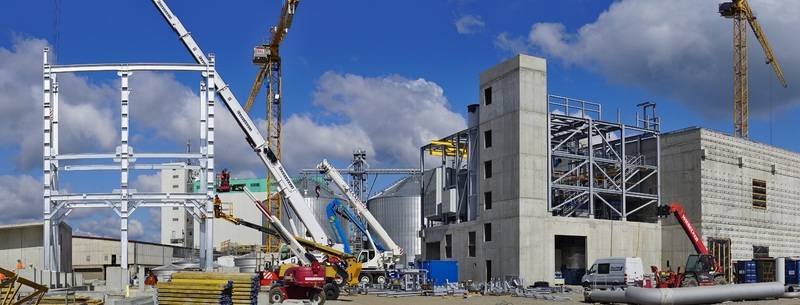Engineering and construction companies face one common problem when it comes to machinery and other technical equipment. Should you rent it from a professional supplier, or is buying the kit a more practical option? It is best to rent if it’s heavy equipment that comes at a steep price, such as a generator, and you are sure you will need it only once or a couple of times.

After all, spending a fortune on a piece of equipment you may use very often is a waste of money. However, renting the equipment is not always a cost-effective option. For example, if you will need to use a piece of machinery frequently or every few weeks, it is better to invest in buying the equipment and installing it in your firm.
Here’s a look at a few tips to help you decide whether you should buy or rent business equipment.
How to Decide if You Should Buy or Rent Equipment
These kinds of equipment are not regularly-used items that cost you only a few bucks. These are instead the long-term tools that can cost you a fortune. Small and medium-sized businesses often lack the capital to buy these tools, which is why they either outsource the task or rent the equipment for a specific period. Either way, it costs you a lot less than the equipment’s purchase price.
When to Buy?
As mentioned above, renting equipment is usually a good option. You need the particular tool for a limited time or a single task or project. Repeated use is the number one reason for buying a piece of business equipment rather than renting it. Purchasing a piece of equipment makes sense if your staff will need to use it over an extended period.
Suppose you need an excavator for 80% of your business operations and almost every day for the next few years. Renting the excavator will cost you a lot more over the long term than buying it. Sure, it involves a significant capital investment to make the initial purchase, but buying business equipment is a good decision if you want long-term savings.
Other items that you’re generally better to buy rather than renting are:
- Office furniture
- Printers and photocopy machines (if you are going to use them frequently)
- Computers and other IT hardware
- Storage equipment
- Office waste and recycling equipment
- Stationery
- Telephone systems and internet infrastructure
These were only the essential tools for a general office. If you are into manufacturing or other complex industries, you may need more specific and expensive pieces of equipment. The best way to know if you should buy or rent these tools is by considering how long you’ll need to use them.
When to Outsource?
There are times when you need equipment that requires certification or a license to operate. If you don’t have the tool or the skills to operate it, it is best to outsource the whole task to a subcontractor. Someone who has access to the equipment with the knowledge and licenses to operate it can complete your job in a much better and efficient way than your staff. There is no point in buying an expensive piece of equipment or training your staff to use it when you need it for a few jobs here and there.
An example is if you need an excavator to excavate part of your site for building or renovations. You will not need the excavator after the job is done, and chances are you don’t have employees who specialize in operating such machinery. So, it is best to outsource this to a third party that has the equipment and the skills to operate it.
When to Rent?
As a general rule, renting is your best bet if you need a piece of equipment for only a few days or for a small project that will last a couple of weeks. Security gadgets or manufacturing equipment that you’ll only need to be used once in a while are better to rent rather than purchase.
For example, you can rent compactors that you might need once every few months for managing office waste from specialists such as PHSwastekit.co.uk . Other types of equipment that it’s better to rent rather than purchase are:
- Lighting systems for events
- Security gates and access control systems
- Specialist hardware
- Furniture you will need only for a short period
When it comes to which equipment you should purchase, rent, and outsource for your business, consider the frequency of its use, the skills needed to operate, and the savings you can make over the long run. These factors will help you to make an informed decision.

